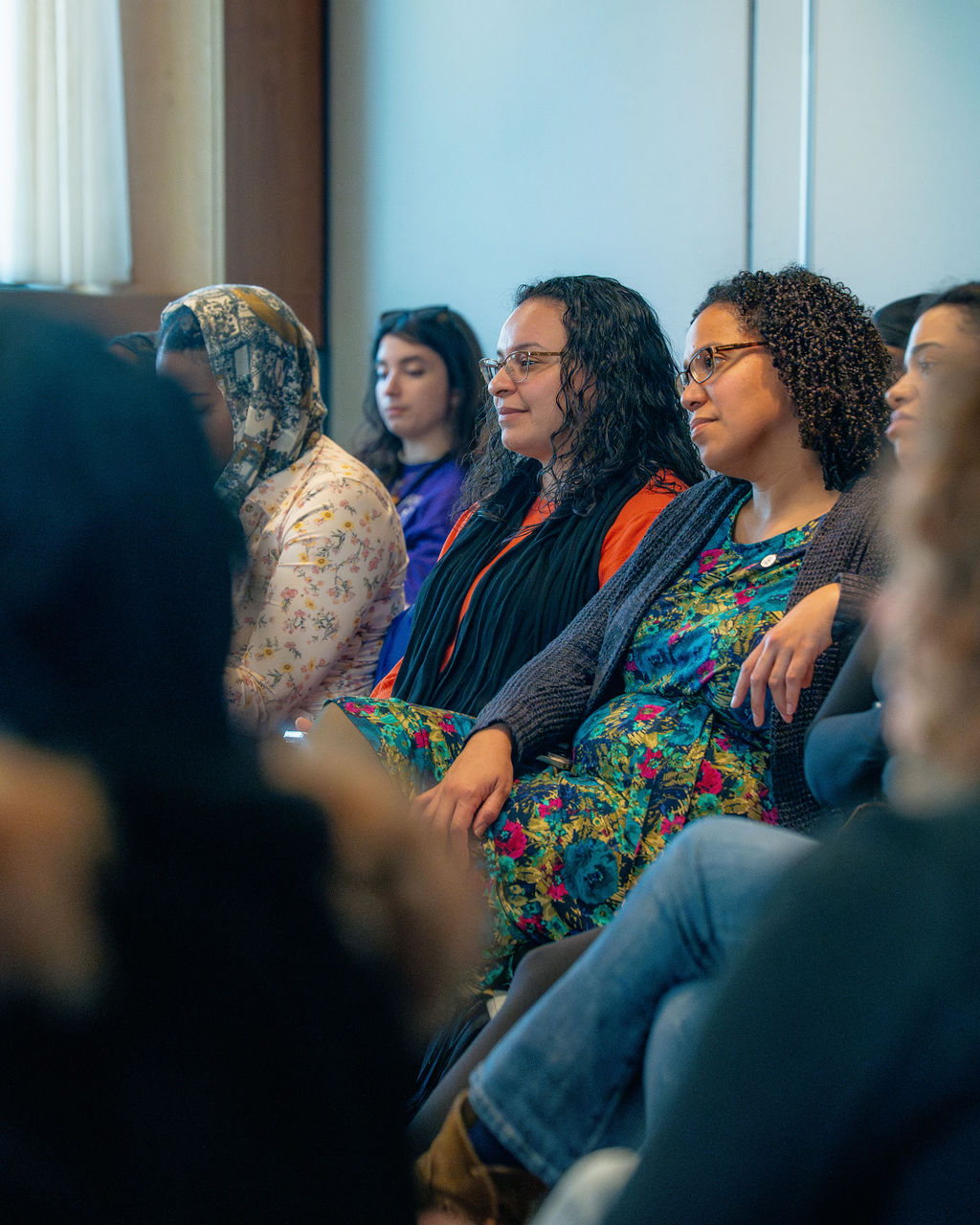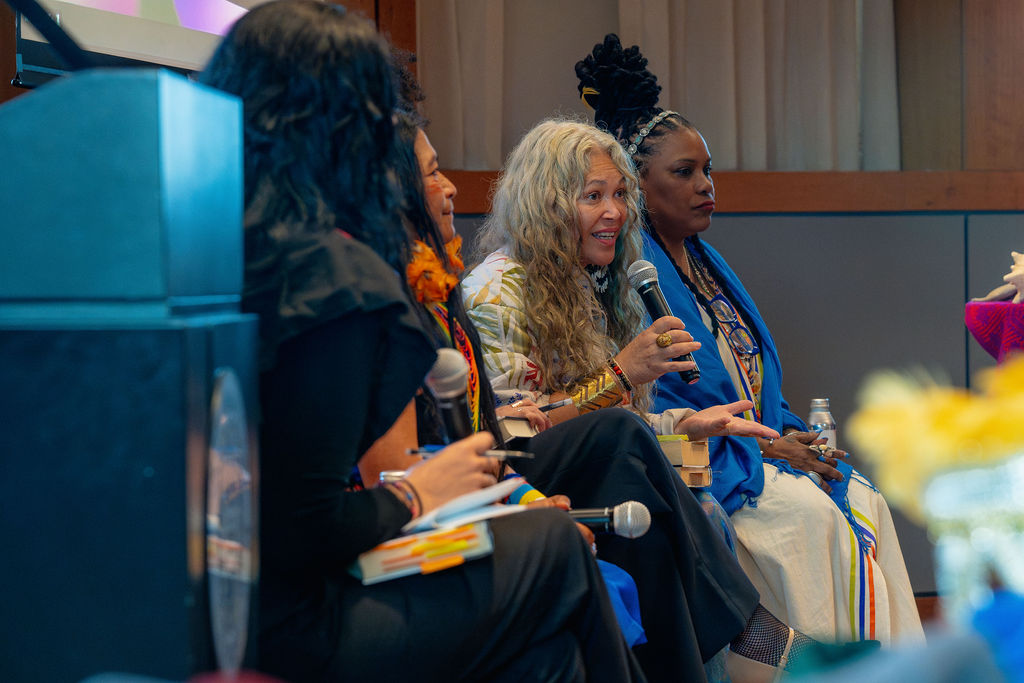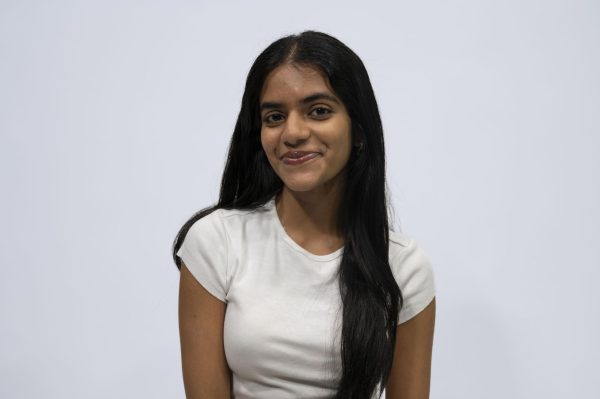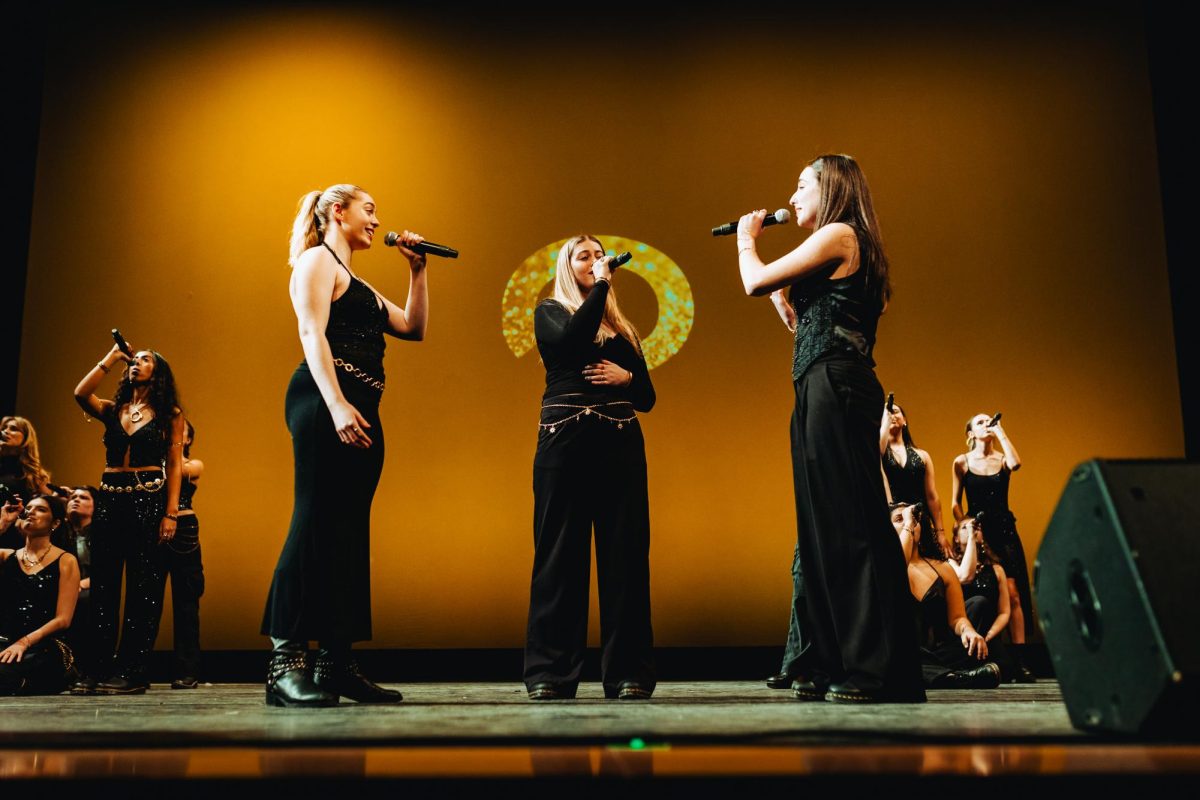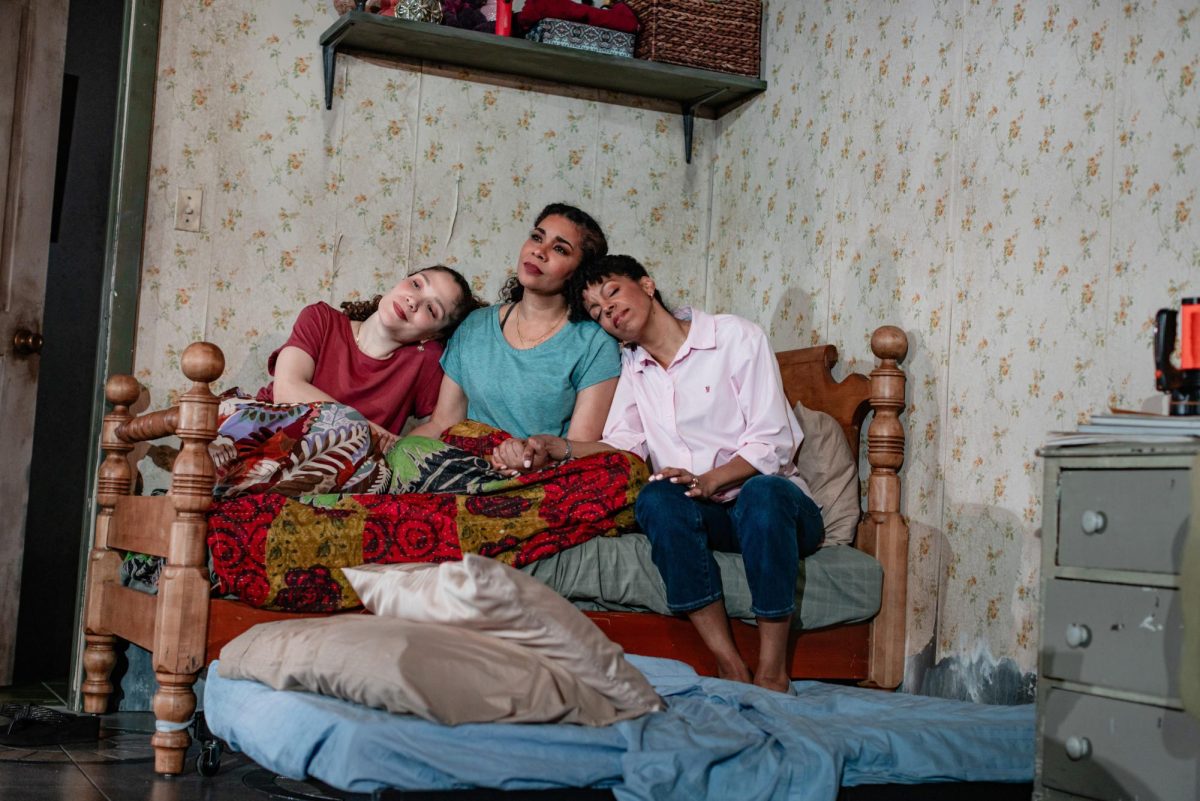Puerto Rico, the Dominican Republic, Panama and the Amazon rainforest: These are only a few of the many locations the contributors of the new anthology “Daughters of Latin America” call home.
While they come from different nations, the experiences and anecdotes of these Latin American women blend together in poetic harmony.
In Northeastern’s alumni center March 20, the editor of the anthology Sandra Guzmán and contributors Diannely Antigua, María Clara Sharupi Jua and Yvette Modestin shared their personal experiences creating the book, which contains memoirs, poems, speeches, chants, songs and short stories. Isabel Martinez, a Northeastern associate professor and director of Latinx, Latin American and Caribbean Studies, moderated the event.
Each contributor read a passage from the book that they wrote, transporting the audience into their world.
Guzmán — an Emmy-winning Afro-Indigenous storyteller — emphasized that there were “four pillars” of women that she thought were crucial to include in the book. These were women of African descent, Indigenous women, queer women and Puerto Rican women.
“We are invisibilized by the mainstream narrative; not everybody looks like Salma Hayek or Jennifer Lopez,” Guzmán said, prompting chuckles from the audience. “We are the most diverse people on the planet, and so for me, it was very important to visualize the invisible women.”
Modestin, an activist and poet hailing from Panama, thanked Guzmán for including her as a Black, Latina and Panamanian woman who often is not seen as one of the daughters of Latin America. She was filled with palpable emotion while reading her poem “Black Spirit,” which she wrote in 2020 after her father passed away.
“As I stand here today and I’m about to read this poem, I asked ‘Black Spirit’ to guide us, to protect us, because everything about being Black right now is being under attack,” Modestin said. “But we are divine, we are blessed and we are truth.”
María Clara Sharupi Jua, a poet and activist born and raised in the Amazon rainforest, read her poems in her native language of Shuar. Though she was the only one in the room who spoke the language, it seemed like the audience understood every word. While tears streamed down her face, the room stood still. She was dressed in traditional Shuar attire, barefoot in both body and emotion.
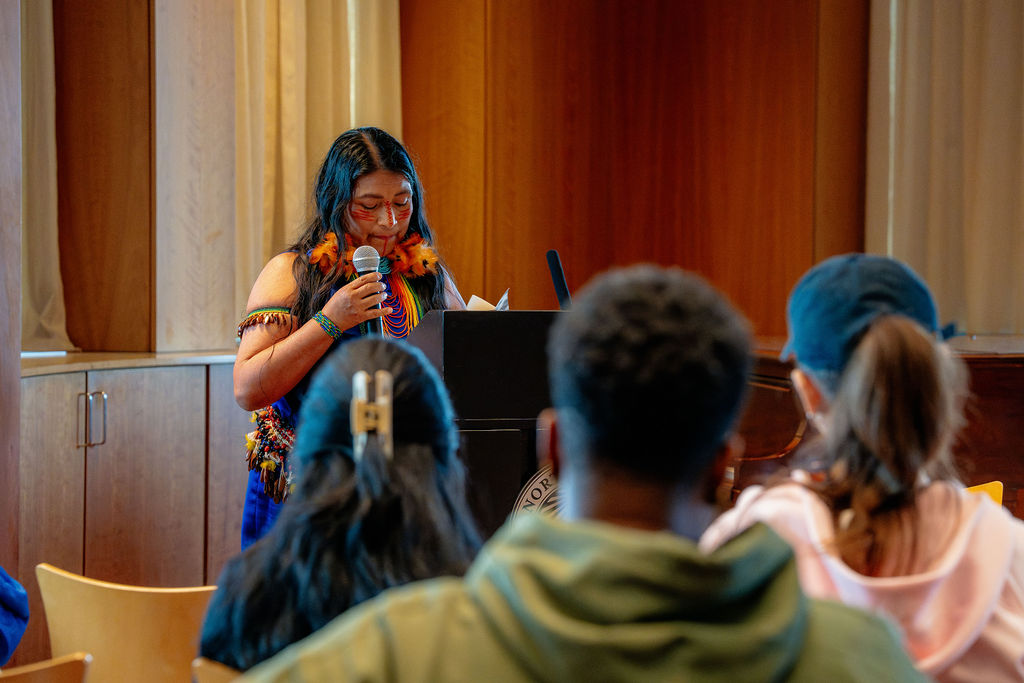
Dominican American educator and poet Antigua’s passion is sonnets, especially somber ones.
“I think that sadness, or the word sad, or you’re too sad for me, was always used as a weapon against me,” Antigua said. “Instead, I wanted to embrace it and celebrate it and let it be my strength instead.”
Antigua’s poetry originates from past trauma and her complicated relationship with religion. She turned to writing because she felt it was the only place she had a voice.
“Poetry helped guide me to becoming who I was supposed to be the whole time,” she said. “While my essence was repressed or suppressed, I was able to regain that through poetry and through writing, and I’m so grateful for it.”
Lisbeth Martinez, a fourth-year international business and international affairs combined major, deeply related to the discourse due to her Dominican and Afro-Latina heritage.
“There are struggles and oppression that our community has lived through the years,” Martinez said. “As a Latina woman who’s faced many adversities, myself being a minority, it was just really captivating to listen to the stories of all these amazing women and just their poems overall, which is really beautiful and very touching.”
In the question and answer segment, the contributors addressed the anthology’s impact on younger generations of Latin Americans.
“No matter what countries we come from, there is an umbilical cord that connects us to the land,” Guzmán said. “I was thinking about the oral histories that are in our families, that come through the poets and come through the writers, and how important it was to make sure that these stories were told.”
Modestin added that her niece went with her to the book launch and interacted with the book’s contributors. “That’s what needs to happen. She needs to see herself in these women, and these women need to see her as the future Afro-Latina that’s going to be taking this forward,” Modestin said.
“This book just captures everybody, and that is a gift,” Modestin said toward the end of the event, to which people nodded and smiled.
